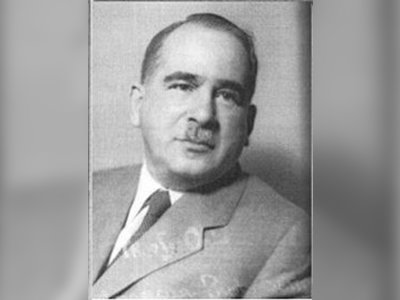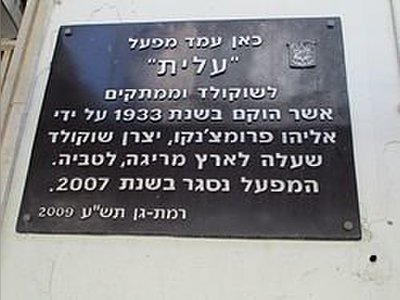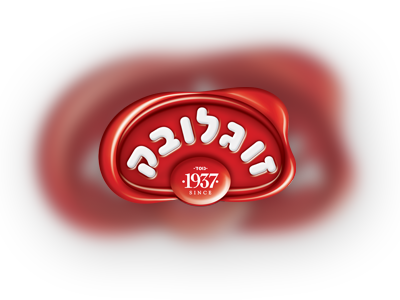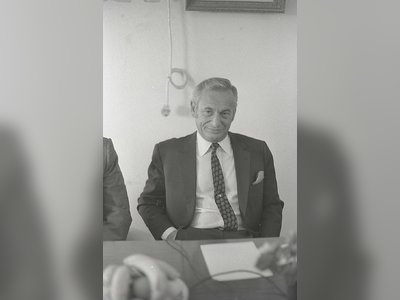מורשת גדולי האומה
בזכותם קיים
beta
Abraham "Bundi" Livnat: A Life of Resilience and Business
Abraham ("Bundi") Livnat, born in 1924 in Německý Brod, Czechoslovakia (now Havlíčkův Brod, Czech Republic), was a prominent Israeli businessman and the founder of the "Taavura" Group, which he later managed.
Biography
Abraham Livnat was born into a family of three sisters and two brothers in Německý Brod, an area in the Carpathian region of Czechoslovakia. His father managed a large agricultural farm, owned by a Hungarian baron, specializing in wine production and alcohol distillation. The Livnat household was Zionist, and the children received their education in Hebrew. Abraham studied metalwork and mechanics at a vocational school.
In 1939, after the outbreak of World War II, Hungarians occupied Německý Brod. During the early war years, Jews in Hungary did not face the same level of persecution as those in Nazi-occupied territories. However, the situation changed in the spring of 1944 when the Germans took control of Hungary. Abraham's family was rounded up, and he and his four siblings were initially sent to a ghetto in their town and later deported to Auschwitz. His youngest sister was separated and killed on the first day, and his father did not survive. Abraham, who was a skilled metalworker, was conscripted for forced labor by the Hungarian military, which aided the Germans in a security operation on an island in the Danube River. The factory, discovered by the Allies, was bombed day and night. Abraham specialized in defusing and removing unexploded bombs. He managed to escape from the forced labor camp and reached the "Glass House" in Budapest, where thousands of Jewish refugees found shelter with the assistance of Swiss diplomat Carl Lutz and agents of "Mossad LeAliyah Bet."
Using forged documents and money received from "Mossad LeAliyah Bet" agents, Livnat clandestinely traveled to Romania and, in December 1944, sailed to Israel aboard the immigrant ship "Taurus."
Initially, he worked in stone in the town of Even Yehuda, and later at a garage in Netanya. There, he became acquainted with Uzzi Ben-Ami, the head of the Netanya council, and became his driver. In parallel, he completed a commanders' course in the Haganah and participated in various underground activities, including the breakout from Acre Prison, the smuggling of large quantities of weapons, and the capture of a British train near Binyamina. He actively participated in the "Battle of Jaffa" of the Haganah and the Battle of Ramla and, ultimately, in the Altalena affair. He also provided refuge in Israel for his younger brother, Yitzhak, and his two sisters, Aliza and Hedi, who survived the Holocaust.
During the War of Independence, he was among the drivers who transported supplies to besieged Jerusalem through the "Burmese Road." After his release from the Israel Defense Forces, he acquired a used truck and later additional trucks and heavy mechanical equipment. This marked the beginning of his career as an earthworks contractor. Among his many projects, he participated in the construction of the Tel Aviv-Natanya highway, the Kastina-Plugot highway, the Kiryat Shmona-Sodom highway, and the transportation of equipment from Camp 80 near Pardes Hanna and a British train near Binyamina. He also transported tanks for the IDF, both before and after the Six-Day War, including tanks and various military equipment.
In 1955, he, together with Zvi Kadztski, founded Taavura Ltd., which expanded its operations year by year. His brother, Yitzhak, joined him as a partner in 1957 and retired from the company after about 40 years.
In the early 1960s, the company entered the field of transporting immigrants in buses and, later on, also the transportation of new cars on car carriers (previously, cars were driven from the port). Another area in which Taavura operated was the transportation of oversized cargo, especially for the Electric Company and other companies. Taavura also transported IDF tanks from before the Six-Day War and, later on, including tanks and armored personnel carriers. In 1996, Taavura also entered the logistics field in collaboration with Maman Ltd. It also partnered with Egged in the Egged Taavura Transport Company. Over the years, the company expanded its operations into various other industries, including trade, agriculture, and real estate, becoming one of the major holding companies in Israel.
In 1996, the partnership between Abraham Livnat and his brother Yitzhak Kadztski was dissolved. In the same year, Taavura entered the field of air cargo transportation by acquiring a partnership in Maman's air cargo company. The company also became a partner with Egged in the Egged Taavura Transport Company. In 2002, it entered into a partnership with Naftali Dankner's IDB Group. In 2008, Abraham Livnat received a lifetime achievement award from the Manufacturers Association for his "unique and diverse contribution to the State of Israel and its industry for over six decades, beginning even before the state's establishment." In the same year, he received recognition for his long-standing contribution to the development of the Negev region.
In 2010, Livnat appointed former Prime Minister Ehud Olmert as the chairman of the group's board. Livnat explained the appointment as a result of his long-standing personal connection to Ehud Olmert, dating back to the pre-state period when he served as a guide in the Haganah and was stationed near Beniaminah. As a Holocaust survivor without immediate family in Israel, he was invited to the home of Ehud Olmert's father, Yitzhak Olmert, in Zivonitzky Village.
Livnat personally knew thousands of his employees, and he was known for personally assisting people he knew and even strangers in need. He had a special relationship with the Druze, Circassians, families of fallen soldiers, and new immigrants. He rehabilitated ex-convicts among his employees and continued to employ them after their release.
"Abraham Livnat Ltd.," a company owned by him and his sons, held shares in Taavura Ltd., I.D.B. Holdings, T.S.M.B. Investments, and Kaman Holdings.
Livnat was married to Rachel (née Reznik) until his passing. Their three sons, Zeev, Tzvika, and Shai, continue to lead the companies he founded.
Legacy and Impact
Abraham "Bundi" Livnat left an indelible mark on the business landscape of Israel. His life story, marked by resilience and determination, serves as a testament to the strength of the human spirit in the face of adversity. His contributions to Israel's infrastructure development, logistics, and various industries have left a lasting legacy that continues to shape the nation's economy and progress.
Abraham Livnat was born into a family of three sisters and two brothers in Německý Brod, an area in the Carpathian region of Czechoslovakia. His father managed a large agricultural farm, owned by a Hungarian baron, specializing in wine production and alcohol distillation. The Livnat household was Zionist, and the children received their education in Hebrew. Abraham studied metalwork and mechanics at a vocational school.
In 1939, after the outbreak of World War II, Hungarians occupied Německý Brod. During the early war years, Jews in Hungary did not face the same level of persecution as those in Nazi-occupied territories. However, the situation changed in the spring of 1944 when the Germans took control of Hungary. Abraham's family was rounded up, and he and his four siblings were initially sent to a ghetto in their town and later deported to Auschwitz. His youngest sister was separated and killed on the first day, and his father did not survive. Abraham, who was a skilled metalworker, was conscripted for forced labor by the Hungarian military, which aided the Germans in a security operation on an island in the Danube River. The factory, discovered by the Allies, was bombed day and night. Abraham specialized in defusing and removing unexploded bombs. He managed to escape from the forced labor camp and reached the "Glass House" in Budapest, where thousands of Jewish refugees found shelter with the assistance of Swiss diplomat Carl Lutz and agents of "Mossad LeAliyah Bet."
Using forged documents and money received from "Mossad LeAliyah Bet" agents, Livnat clandestinely traveled to Romania and, in December 1944, sailed to Israel aboard the immigrant ship "Taurus."
Initially, he worked in stone in the town of Even Yehuda, and later at a garage in Netanya. There, he became acquainted with Uzzi Ben-Ami, the head of the Netanya council, and became his driver. In parallel, he completed a commanders' course in the Haganah and participated in various underground activities, including the breakout from Acre Prison, the smuggling of large quantities of weapons, and the capture of a British train near Binyamina. He actively participated in the "Battle of Jaffa" of the Haganah and the Battle of Ramla and, ultimately, in the Altalena affair. He also provided refuge in Israel for his younger brother, Yitzhak, and his two sisters, Aliza and Hedi, who survived the Holocaust.
During the War of Independence, he was among the drivers who transported supplies to besieged Jerusalem through the "Burmese Road." After his release from the Israel Defense Forces, he acquired a used truck and later additional trucks and heavy mechanical equipment. This marked the beginning of his career as an earthworks contractor. Among his many projects, he participated in the construction of the Tel Aviv-Natanya highway, the Kastina-Plugot highway, the Kiryat Shmona-Sodom highway, and the transportation of equipment from Camp 80 near Pardes Hanna and a British train near Binyamina. He also transported tanks for the IDF, both before and after the Six-Day War, including tanks and various military equipment.
In 1955, he, together with Zvi Kadztski, founded Taavura Ltd., which expanded its operations year by year. His brother, Yitzhak, joined him as a partner in 1957 and retired from the company after about 40 years.
In the early 1960s, the company entered the field of transporting immigrants in buses and, later on, also the transportation of new cars on car carriers (previously, cars were driven from the port). Another area in which Taavura operated was the transportation of oversized cargo, especially for the Electric Company and other companies. Taavura also transported IDF tanks from before the Six-Day War and, later on, including tanks and armored personnel carriers. In 1996, Taavura also entered the logistics field in collaboration with Maman Ltd. It also partnered with Egged in the Egged Taavura Transport Company. Over the years, the company expanded its operations into various other industries, including trade, agriculture, and real estate, becoming one of the major holding companies in Israel.
In 1996, the partnership between Abraham Livnat and his brother Yitzhak Kadztski was dissolved. In the same year, Taavura entered the field of air cargo transportation by acquiring a partnership in Maman's air cargo company. The company also became a partner with Egged in the Egged Taavura Transport Company. In 2002, it entered into a partnership with Naftali Dankner's IDB Group. In 2008, Abraham Livnat received a lifetime achievement award from the Manufacturers Association for his "unique and diverse contribution to the State of Israel and its industry for over six decades, beginning even before the state's establishment." In the same year, he received recognition for his long-standing contribution to the development of the Negev region.
In 2010, Livnat appointed former Prime Minister Ehud Olmert as the chairman of the group's board. Livnat explained the appointment as a result of his long-standing personal connection to Ehud Olmert, dating back to the pre-state period when he served as a guide in the Haganah and was stationed near Beniaminah. As a Holocaust survivor without immediate family in Israel, he was invited to the home of Ehud Olmert's father, Yitzhak Olmert, in Zivonitzky Village.
Livnat personally knew thousands of his employees, and he was known for personally assisting people he knew and even strangers in need. He had a special relationship with the Druze, Circassians, families of fallen soldiers, and new immigrants. He rehabilitated ex-convicts among his employees and continued to employ them after their release.
"Abraham Livnat Ltd.," a company owned by him and his sons, held shares in Taavura Ltd., I.D.B. Holdings, T.S.M.B. Investments, and Kaman Holdings.
Livnat was married to Rachel (née Reznik) until his passing. Their three sons, Zeev, Tzvika, and Shai, continue to lead the companies he founded.
Legacy and Impact
Abraham "Bundi" Livnat left an indelible mark on the business landscape of Israel. His life story, marked by resilience and determination, serves as a testament to the strength of the human spirit in the face of adversity. His contributions to Israel's infrastructure development, logistics, and various industries have left a lasting legacy that continues to shape the nation's economy and progress.




